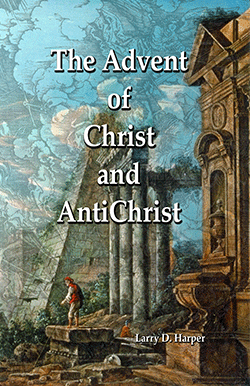Excerpt From Newsletter
Satan’s objective in becoming incarnate as the Antichrist also explains why he is called “antichrist.” Today we tend to think of the Antichrist as the one who is “against” Christ because the English prefix anti- means “against.” However, the Greek prefix anti is a preposition that means “instead of,” or “in place of.” Therefore, the Antichrist is the one who comes instead of, or in place of, Jesus Christ.
Significantly, the term antichrist occurs in the New Testament only in the writings of the Apostle John. It appears that he may have coined the term and that he did so intending to thereby designate the primary objective of the Antichrist—to replace Jesus as the Christ. To attain that end, the Antichrist will arise from within or return to the nation of Israel, pretending to be the Messiah and pretending to seek the best for the Jews. Elsewhere, however, Hippolytus tells us the Antichrist cares nothing at all for the Jews. Ultimately, the Jews are the ones who will suffer the most because of their close association with him.
The second point you should note carefully is the link Hippolytus makes between the final week of Daniel’s Seventy Weeks and the events that take place after the opening of the seventh seal in Revelation 8. That bit of information was accurately maintained and transmitted to him from the Apostle John through the ministry of Polycarp and Irenæus.
The reader should also observe that the events of the seventh seal occur immediately after the sealing of a multitude of True Believers after the sixth seal has been opened in Revelation 7. Those events take place shortly before the beginning of the final week of Daniel’s Seventy Weeks. They correspond to some degree with Daniel’s mention of “those who have insight” as “those who lead the many to righteousness” in Daniel 12:3. All are yet to come in the near future. (See “One Train. One Track. Two Rails.” The Voice of Elijah®, January 1992.)
Finally, Hippolytus’ understanding of the ten horns of the fourth beast in Daniel 7 and the ten toes of the great statue in Daniel 2 is instructive. Many Christians today understand those images to represent the union of ten countries in the European Common Market. They should, instead, be looking at the fact that the ten toes came out of the two feet. According to Hippolytus, Israel is a “little horn” among them. Therefore, the ten nations can hardly be the European Common Market.
“That’s Why He’s Called Antichrist!” The Voice of Elijah®, April 1992, p.12
Newsletter Details
| Contribution of | $6.00 |
|---|---|
| Pages | 26 |
| Author | Larry Dee Harper |
| Language | English |
The Truth is Available
Check Out the Online Library
Browse through our library of booklets and newsletters—absolutely free!
Start Reading Now



